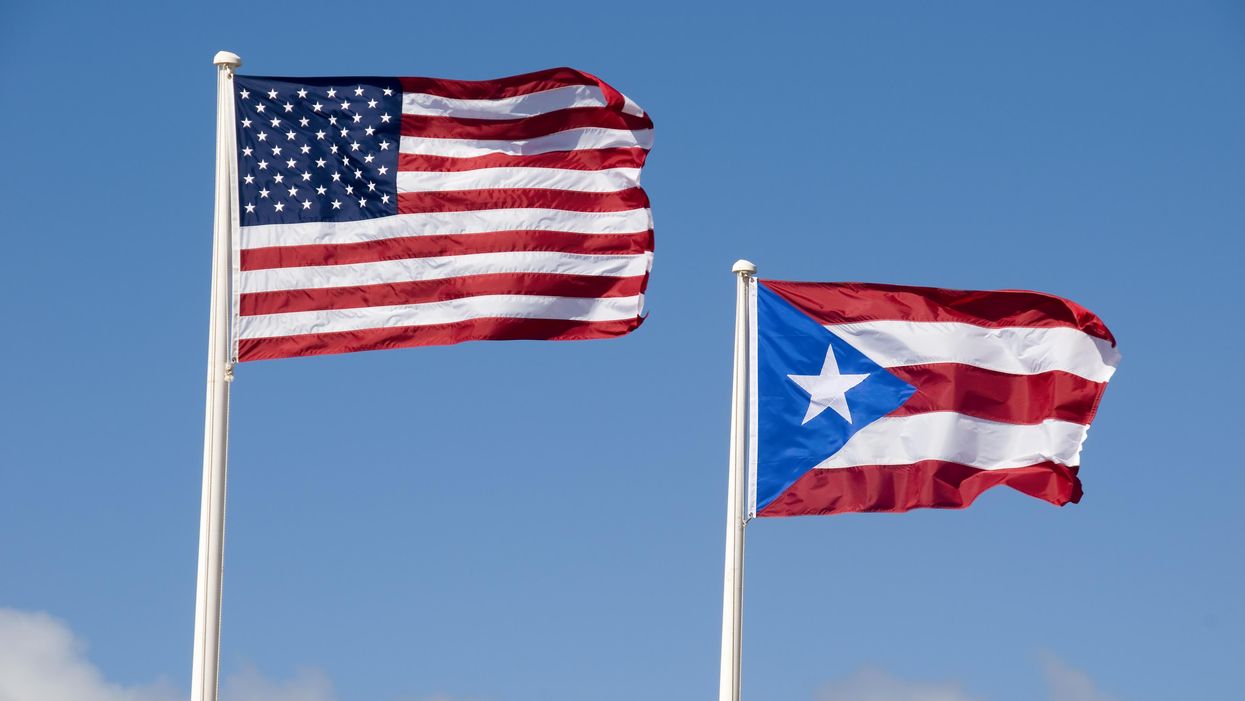Medina is a member of Boricuas Unidos en la Diáspora, a group of U.S.-based Puerto Ricans that advocates for Puerto Rico's self-determination and decolonization.
In recent months, Americans have been rightfully concerned about threats to the nation's democracy, from the Jan. 6 insurrection at the Capitol to new restrictive voting laws in states across the country. At the same time, America's oldest democratic crisis rages on: Puerto Rico remains, for all intents and purposes, a U.S. colony — its more than 3 million residents granted neither full sovereignty nor full political rights in the United States. That immoral status quo rarely garners much attention, but it urgently demands action from all Americans who defend democratic values.
Puerto Rico has been a U.S. possession for 123 years. The U.S. Congress, in which Puerto Ricans lack full voting representation, exercises plenary power over the island. Puerto Ricans cannot vote for the president who may send them to war or, indeed, order or impede life-saving disaster aid. Too few Americans have adequately grappled with how Puerto Rico's political status perpetuates the interconnected socioeconomic crises that afflict the island, and remains an enduring hindrance to the well-being and prosperity of its people.
For decades that status quo persisted, in part, because a majority of Puerto Ricans tacitly supported it. That was never adequate justification: "colonialism by consent" is a grotesque concept, and it does not exempt the United States from its moral responsibility to free the island from political limbo. But the U.S. has consistently shirked that responsibility. Puerto Rico has held six status plebiscites in the last 55 years; the last four have marked, in one way or another, a rejection of the current status, but Congress has not taken any meaningful action to decolonize Puerto Rico. And why should they? Puerto Ricans can neither reward nor punish U.S. politicians for their action or inaction on this issue; and Americans, convinced that it's "not their place," implicitly support the status quo through their indifference.
It's happening again now. Last year, 53 percent of Puerto Rican voters chose statehood in the latest plebiscite. But, in Congress, a proposal to annex Puerto Rico is dead in the water. To be clear, there are good reasons to not support statehood, which won only a slim majority in a "yes or no" vote that included no other options. For one thing, Puerto Ricans' vote for statehood reflects preferences and prejudices forged in a crucible of colonial domination, economic dependence and political persecution. To cite just one example, the same FBI surveillance program that persecuted Martin Luther King Jr., spent six decades collecting more than 1.5 million pages of secret files on Puerto Rican independence advocates.
Most importantly: Puerto Rico is a nation and Puerto Ricans a distinct people. For our homeland to be absorbed into the country that once invaded it in an imperialist frenzy is far from a just and decolonial outcome.
Still, Congress' refusal to act on Puerto Ricans' stated preference should belie once and for all the notion that the United States will simply "heed the will of the people" on the status question. Nor should anyone expect a supermajority consensus to emerge anytime soon. Puerto Ricans have spent decades divided on this issue because it turns on fundamental questions about nationhood, identity and culture that are not easily reconciled.
But neither the intractable nature of the problem nor immobilism in D.C. can be an excuse for inaction that leaves Puerto Ricans in a state of subordination. When Congress neglects the concerns of the American people, it's a bug in a democracy in which those citizens are full participants. But inaction on Puerto Rico's status is a feature of a system in which the U.S. continues to deny democracy altogether to Puerto Ricans.
It's going to take Puerto Ricans and Americans, working together, to dismantle that system. The United States can no longer be a passive participant on this issue, content to ignore Puerto Ricans on all sides of this debate. American leaders, and the American people, must become active partners in a serious, inclusive decolonization process that rejects the status quo and defines alternatives, so that Puerto Ricans can make an informed decision that Congress will respect.
Fortunately, such a proposal is already on the table: the Puerto Rico Self-Determination Act. Introduced by Reps. Alexandria Ocasio-Cortez and Nydia Velázquez in the House, and by Bob Menéndez in the Senate, it outlines a process by which Puerto Rico would hold a convention to deliberate on non-territorial status options, draft transition plans and hold educational campaigns before a vote. The convention would work with a congressional bilateral commission, which would ensure that plans and alternatives are realistic and politically viable. Most importantly, it would create a framework to untangle a complex colonial legacy, place independence and statehood on equal footing, and compel the United States to finally end this shameful chapter in our shared history.
The Puerto Rico Self-Determination Act is co-sponsored by leading Democrats like Sens. Bernie Sanders, Elizabeth Warren and Amy Klobuchar; and Reps. Maxine Waters, Adam Schiff, Joaquín Castro, Ayanna Pressley and Katie Porter. It has bipartisan backing from Republican Sen. Richard Burr. Despite that broad support, the bill is stuck in committee. There it will remain unless the American people do what Puerto Ricans cannot: speak up, advocate and pressure their elected officials.
Whether they favor statehood or — as I do — independence, millions of Americans rightfully support "self-determination" for Puerto Rico. It is past time for them to act on it.



















Trump & Hegseth gave Mark Kelly a huge 2028 gift